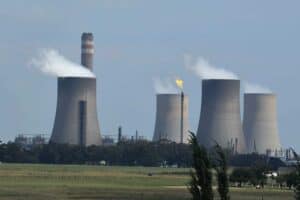New Zealand is halting all new offshore oil and gas exploration to become a global leader in the fight against climate change, the centre-left government said Thursday, but opponents accused it of "economic vandalism".

“(We are) taking an important step to address climate change and create a clean, green and sustainable future for New Zealand,” Prime Minister Jacinda Ardern said.
The oil and gas industry in New Zealand generates about NZ$2.5 billion a year ($1.8 billion), including NZ$1.5 billion in exports, and employs about 11,000 people.
Ardern said existing drilling and exploration permits would not be affected, meaning no existing jobs would be lost.
She said there would also be limited new on-shore permits around the North Island’s Taranaki region, where most of New Zealand industry is concentrated.
“We’re striking the right balance for New Zealand — we’re protecting existing industry and protecting future generations from climate change,” she said.
The move by New Zealand comes two weeks after the Netherlands announced plans to rapidly cut production at — and eventually close — Europe’s biggest gas field as it too seeks to its slash fossil fuel use.
Ardern campaigned heavily on environmental issues when she won a general election last year and is in a three-way coalition government that includes the Greens.
New Zealand's government has 22 active offshore oil and gas exploration permits
She said she saw the impact of climate change first-hand last month when she visited the cyclone-ravaged Pacific island nations of Samoa and Tonga.
This, she said, underscored the fact that climate change was real and New Zealand needed to be at the forefront of efforts to address it.
“We’ve been a world leader on critical issues… by being nuclear free, the first to support women to vote,” she said.
“Now we could be a world leader in becoming carbon neutral. We owe this to future generations.”
The government said there were currently 31 oil and gas exploration permits, with 22 of them offshore.
Environmental groups welcomed the move, with Greenpeace declaring “the tide has turned irreversibly against Big Oil in New Zealand”.
“This is a huge step forward for New Zealand and a landmark moment in the transition to a clean-energy economy,” WWF New Zealand chief Livia Esterhazy said.
– ‘Kick in the guts’ –
But the conservative opposition National Party accused Ardern of “economic vandalism” that could put thousands of jobs at risk.
Opposition energy spokesman Jonathan Young said gas helped ensure New Zealand’s electricity supply and when existing reserves ran out in 10 years it would be forced to import emissions-heavy alternatives such as coal.
“This decision is devoid of any rationale. It certainly has nothing to do with climate change,” he said.
“These changes will simply shift production elsewhere in the world, not reduce emissions.”
Jacinda Ardern said her recent visits to Samoa and Tonga underscored the need to address climate change
New Plymouth mayor Neil Holdom said the decision was “a kick in the guts” for the Taranaki region.
“Nobody’s going to be losing their jobs overnight but in terms of the long-term outlook for those industries… people are going ‘my career doesn’t actually have a future’,” he told Radio New Zealand.
Industry group Petroleum Exploration and Production NZ (PEPANZ) said it had been blindsided by the announcement and had not been consulted by the government.
Chief executive Cameron Madgwick said a well-managed trading scheme was the way to reduce New Zealand’s emissions, not “arbitrarily banning” certain fuel types.
“We now join the elite club of Belize, Costa Rica and France that have banned exploration. I don’t think that’s really the way the world’s going,” he told TV3.
Ardern said industry had been given plenty of time to adjust to changes in the sector that were a long-term necessity.
“Transitions have to start somewhere and unless we make decisions today that will essentially take place in thirty years time, we risk abrupt shocks,” she said.






